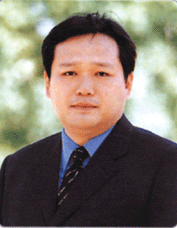
지난달 20일 우리학교 신문방송학과 김무곤 교수가 한국방송광고공사(KOBACO) 이사로 선임되었다. 이는 개정된 한국방송광고공사법에 따라 경영의 투명성 확보, 자율경영구조 정착, 공기업의 윤리성 제고를 위해 비상임이사제를 도입한 데에 따른 것이다. 임기는 지난달 16일부터 2010년 3월 15까지 총 3년이다.

지난달 20일 우리학교 신문방송학과 김무곤 교수가 한국방송광고공사(KOBACO) 이사로 선임되었다. 이는 개정된 한국방송광고공사법에 따라 경영의 투명성 확보, 자율경영구조 정착, 공기업의 윤리성 제고를 위해 비상임이사제를 도입한 데에 따른 것이다. 임기는 지난달 16일부터 2010년 3월 15까지 총 3년이다.